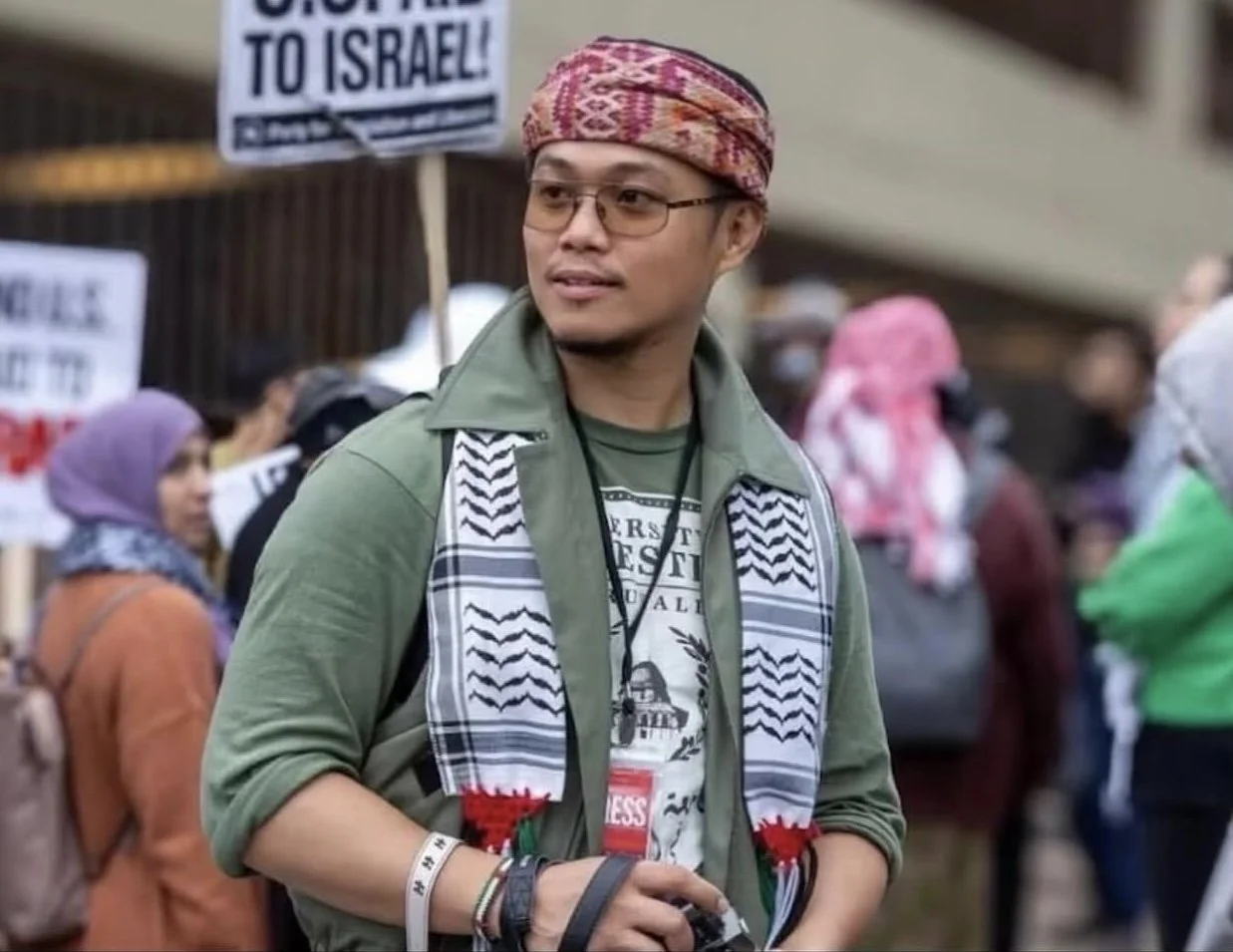Jacob Vijandre and the price of a voice in America
Photo: Jacob Vijandre.
People have been wondering why I’ve been wearing a keffiyeh more often. I do so in solidarity with a fellow Filipino American Muslim young man caught in the ICE raids.
I keep thinking about Jacob Vijandre, about the quiet, earnest promise of a life built in Dallas that was shattered in a single day.
Jacob’s story is not just an immigration case; it’s a devastating illustration of what happens when the right to speak is conditional, hanging on the fragile thread of Deferred Action for Childhood Arrivals, or DACA.
For a Filipino American who arrived here as a boy, who grew up knowing only this country, DACA wasn't a handout, but a permission slip for existence—a chance to work legally, pay taxes, and, in his case, become a skilled aircraft mechanic. That is the American dream for so many immigrants: stability earned through contribution.
But Jacob, or Yaa’kub as he is also known, was not content with only earning stability; he chose to use his voice to fight for justice, documenting protests as a photojournalist and advocating for Palestinian rights.
This is where the dream became a nightmare. His political speech, his posts online that criticized government actions and supported human rights, were deemed enough to revoke the very status that allowed him to be here.
I struggle with the chilling irony of it. How can a country so founded on the idea of dissent and the First Amendment so violently strip a person of their security for exercising that exact right?
The image of him being detained at gunpoint outside his home is a brutal reminder of the precariousness faced by thousands of DACA recipients. Their lives are built on shifting sands.
We were told DACA was a shield, but Jacob’s case reveals it’s more like a fragile permission slip, now threatened by the government's claim that his DACA status was revoked over his posts.
His legal team quickly countered, arguing that he was served only with a Notice of Intent to Terminate, not a final decision, meaning his DACA remains valid until May 2026.
Despite this legal validity, his detention continued. His subsequent transfer over a thousand miles from the Texas facility to the remote Folkston ICE Processing Center in Georgia, away from his local support and Dallas-based lawyers, speaks volumes about the punitive nature of this action. It was a calculated move designed to isolate and break the spirit of an activist.
In response, his counsel had to file a powerful petition for a writ of habeas corpus in Georgia, seeking his immediate release and challenging the very legality of his confinement.
But the story gets even darker. Court filings revealed that this whole ordeal may have been brewing since late 2023, when Jacob was allegedly approached by FBI agents and asked to become a confidential informant an offer he declined. This adds a devastating layer of alleged retaliation to his arrest.
The government is essentially equating his advocacy his opposition to U.S. foreign policy, the policies of the Israeli government, and mistreatment of prisoners with supporting terrorism.
This isn't just about immigration law; it's a profound attack on the First Amendment. It sets a dangerous precedent, suggesting that non-citizens, even those with DACA protection, can have their lives upended not for committing a crime, but for simply exercising the right to speak critically about the government.
Jacob's identity as a Filipino American and a Muslim adds layers of complexity, highlighting the targeting of political expression within marginalized communities. His courage in stepping up to tell human stories, even while his own status was uncertain, is a testament to an idealism I admire deeply.
I look at his picture the head scarf, the determined eyes, the camera around his neck and I see not a threat, but a young man determined to make this country better, only to be told his voice comes with a price tag too high to pay.
His fight now is the fight for every one of us who believes that speaking truth to power should never be grounds for exile.
What makes Jacob and I different are citizenship and religion. Otherwise, we’ve both used our platforms to advocate for others, his in images and mine in words.
We’re both Filipino Americans. We share in our heritage of a people conquered and colonized—and folded that into the foundation of our work.
And for all that, I wear the keffiyeh that he wore for others.

